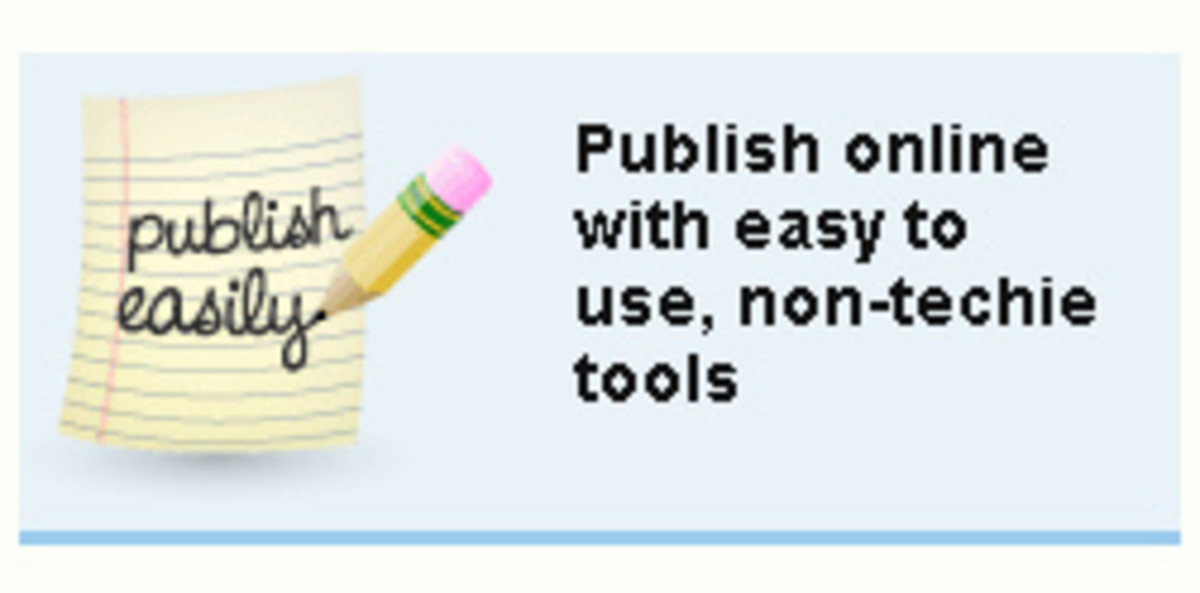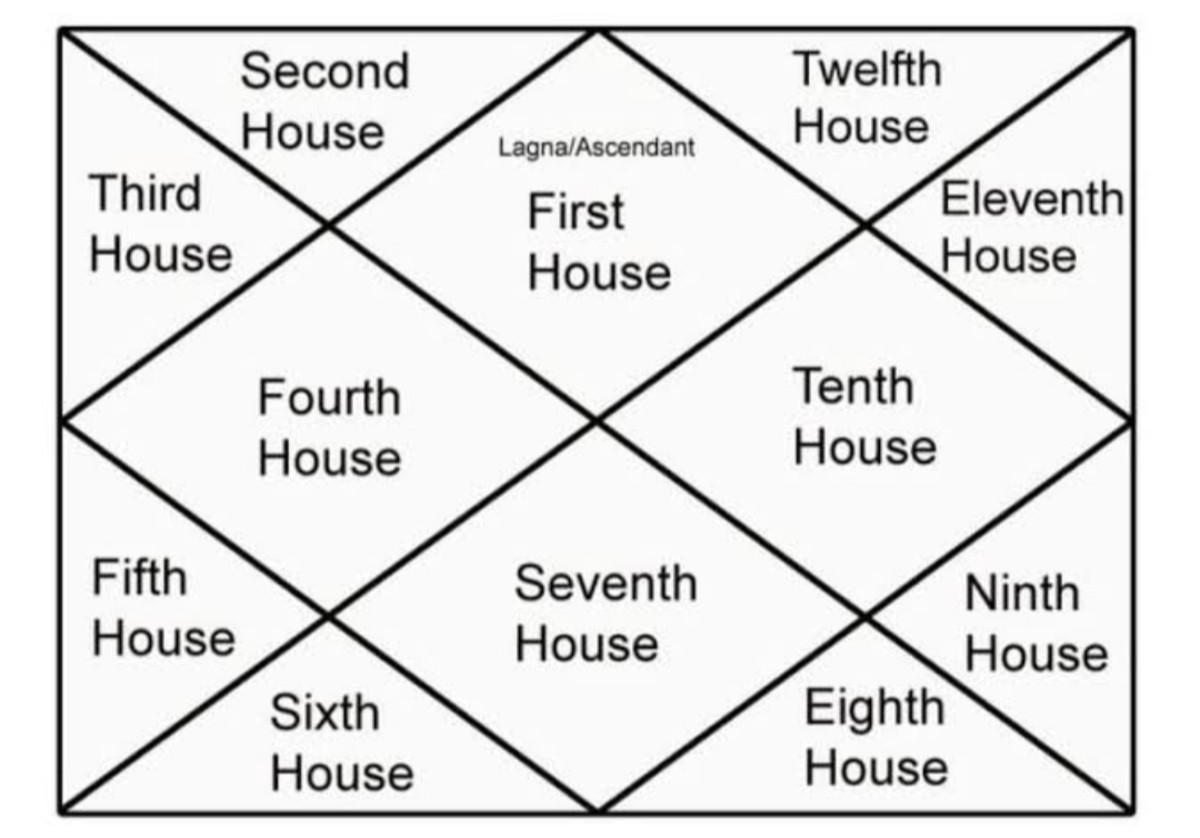About Hubpages - How To Achieve High Hub and Hubber Scores
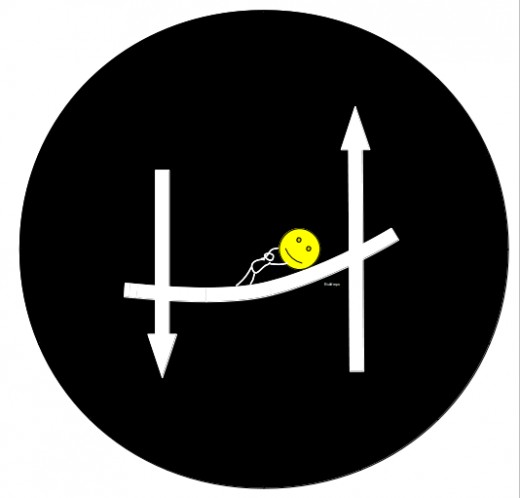
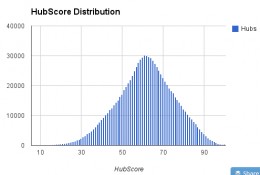
About This Hub
This Hub started as one of the shortest Hubs ever with a score of only 39. I will experiment with this Hub to understand how Hub and Hubber scores work and administer my findings during this process.
I will gradually upgrade this Hub and keep track how this affects the Hub score. I will also record how my Hubber score swings up and down with varying Hubbing behaviour.
This Hub is currently (begin March 2015) swinging around a score of 84.
Are Hub(ber) Scores Important For You?
The Parameters and Upgrading This Hub
I will keep track of the following parameters every day:
- The score of this Hub during the upgrading process;
- The content of this Hub - amount of words, total amount of capsules, pictures, links, tables, misspellings, polls, etcetera;
- The daily Hubber score;
- The average Hub score;
- The highest Hub score;
- The lowest Hub score;
- Amount of Hubs;
- Amount of comments on other Hubs during last 24 hours;
- Forum activity last 24 hour.
I will upgrade this Hub gradually each day with changing only one or two parameters at a time, in order to understand how the changes affect the scores. If I would change too many parameters at once, I am not able to determine which of the changes caused a score change.
I will process my findings eventually in this Hub.
The beautiful part of writing is that you don't have to get it right the first time unlike, say, brain surgery.
— Robert CormierTime Delay
Systems that respond with a significant delay are harder to control than systems that react immediately on an input pulse. Therefore is the output of systems with a time delay more erratic (versatile) than the output of quick responding systems.
Imagine how Hubbers would behave if the Hubpages assessment system would immediately respond on every action a Hubber would undertake. It would be much easier to increase scores, which would make Hubs look more similar. I assume that most Hubbers who desire a high score would edit their hubs, check the scores, edit again, check, etcetera, until the Hubber is satisfied in the score instead how the Hub should be according to the Hubbers' opinion.
The response delay is crucial to increase the versatility of Hubs, because I think the Hubber behaves more authentic.
I have a slight handicap, since English is not my native language which makes it much harder for me to achieve high scores. Nonetheless, my ego still loves high Hub and Hubber scores and since the assessment system of Hubpages is so confusing for me, I wanted to learn more hard facts how to increase my scores.
How Hub scores are Affected by Category
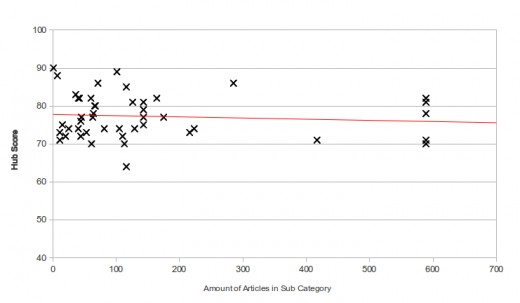
Hub scores seem to vary due to many different parameters like the amount of words, the amount of misspellings in the text and the richness of the Hub.
Since my Hubs do not have all the same quality, I used here the technique of the scatter plot. Scatter plots are used when during an experiment there are too many variables beyond the control of the experimenter. The experimenter determines two variables that he wants to distill from the experiment, which are in my case Hub scores versus the amount of Hubs in a subcategory.
I checked out all my (other) 47 Hubs. I administrated the scores of my Hubs, to which category they belong and the amount of other Hubs in that category. You see I used Excel to create a weighted average line through the 47 plotted points, which is slightly going down. The weighted average line shows a trend:
- The less Hubs in a subcategory, the higher the score.
- The more Hubs in a subcategory, the lower the score.
Hubs in sparsely occupied subcategories seem to score 1 to 2 points higher, probably because there's not much reference material to compare your new Hub with. It could explain partially why Hub scores dropped after articles from Squidoo were added.
So, with exactly the same effort your Hub will score slightly better when you publish it in a sparsely occupied subcategory.
With the Hub Tree you can check out which categories are sparsely occupied. Categories with less than 20 Hubs are not hyperlinked.
This Hub is categorized in HubPages Tutorials and Community → Help for New Hubbers → Introduction to Hub Score/Hubber Score that currently contains 10 articles.
Hubber Scores Are Affected by the Amount of Hubs
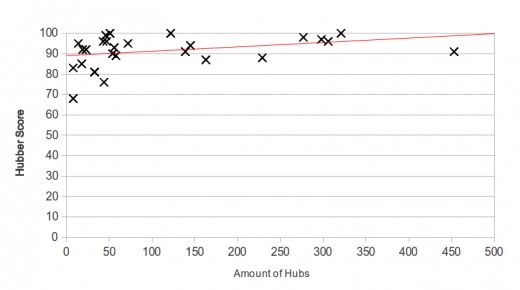
The trendline shows - the more Hubs a Hubber has written, the higher the Hubbers' score becomes. Whether this is caused by the assessment system of Hubpages or that practice makes perfect is not clear to me - it is probably a mix of both. The above scatter plot shows an upgoing trend. The information is gathered randomly from Hubpages and contains therefore a representative selection.
Writing more Hubs will definitely increase your Hubber score. The Deming cycle Plan-Do-Check-Act is applicable for writing on Hubpages and most high scoring Hubbers are following this principle.
- With every 50 Hubs your Hubber score increases in general with 1 point. This might vary depending of the quality of your Hubs.
Writing a Hub every day during one or more weeks will boost your Hubber score. This is caused by the assessment system of Hubpages that appreciates this behaviour with additional Hubber points. After you've stopped writing your Hubber score will drop slowly, but will stay higher for a longer time.
My Hubber score dropped dramatically from 93 to 86 in one day after publishing this initially (very) low scoring Hub. It was already a few months ago that I was in the eighties. This means that if you appreciate a high Hubber score, every Hub has to be published with care and attention.
How Followers Affect Your Hubber Score (A)
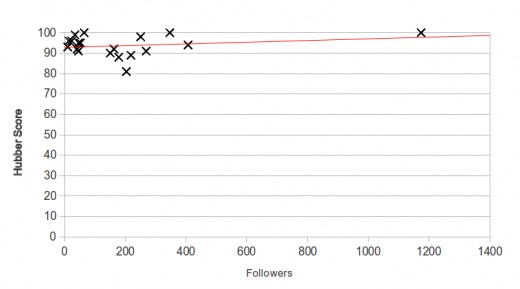
In general counts the rule - the more followers, the higher the Hubber score.
You probably won't follow everyone back that follows you. There can numerous reasons for this that differs from Hubber to Hubber. But there's a snag.
Most Hubbers with many followers stop to follow back at a certain point, which in most cases results in a lower score.
With every 100 followers your Hubber score will go up with approximately 1 point.
Ratio Followers versus Following (B)
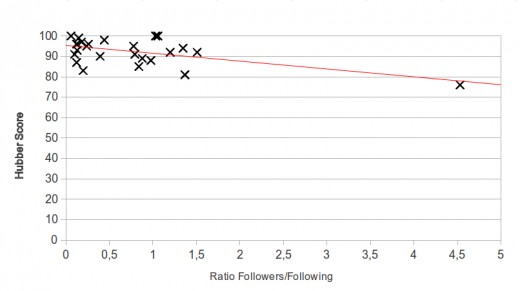
There are Hubbers who don't follow as much Hubbers as they're followed. This choice is in many cases penalized by a lower Hubber score.
The slope of the graph that goes upward (A) is milder than the slope of the graph that goes downward (B), which means that it's hard to keep a Hubber score of 100 when you've an unbalanced following back ratio, unless you're able to compensate this in other ways - like commenting on other Hubs and a certain level of activity in forums.
Followers vs. Following Rate - It Seems to Work Like This
Followers
| Bonus on your Hubber score
| Ratio followers/following
| Penalty on your Hubber score
|
|---|---|---|---|
100
| +1
| around 2:1
| -8
|
200
| +2
| between 2:1-3:1
| -12
|
500
| +5
| between 4:1 - 5:1
| -16
|
1000
| +10
| between 5:1 - ∞
| -20
|
this is a rule of thumb - not a hard and fast rule!
For example, a Hubber with good writing skills, with 1000 followers and a followers/following rate of 5:1 (follows only 200 Hubbers), has in most case a score of around 90 (100+10-20). If you want to increase this score, you have to compensate this in other ways.
- Balancing your follower/following ratio will likely increase your Hubber score.
If after all these actions as described above your Hubber score still remains low, there's something else wrong.
The Use of Capsules
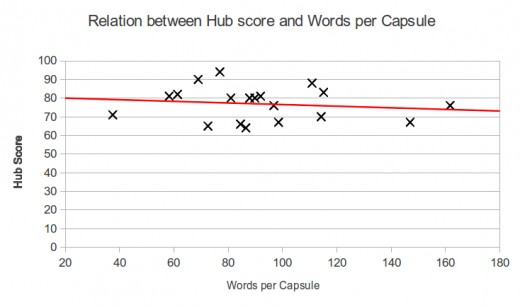
The graph above shows the relation between Hub scores and the amount of words per capsule.
The chance that your Hub will score better is higher when you cut the text into more small text capsules, instead of putting a mountain of text in only one text capsule.
Use a good catching title for every capsule that summarizes the contents well.
- In general your Hub will score between 2 to 3 points higher if you keep the text capsule under 150 words.
Hubs Are Like Wine
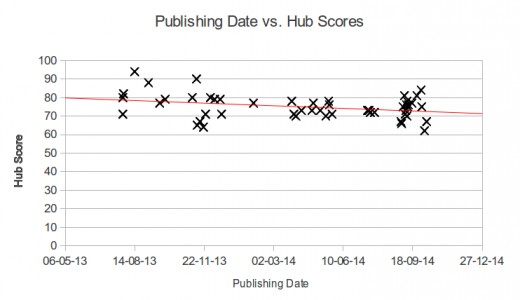
Hubs are like wine, the older they get the better they become. It's likely this has to do with two things:
- the feedback to your hubs,
- and by editing your Hub in order to perfect it in time.
The more followers and backlinks to a Hub the faster this ripening process will proceed. Your attention will be drawn more to a Hub that has a lot of feedback, which logically means this Hub gets more attention from the Hubber himself, with the result that the Hubber will check, read and correct the Hub more often, which finally results (in general) in a better Hub.
- Feedback (interesting, funny, awesome, etc.) to your Hubs seems to add a little bit to the Hub score - 1 point per 5 feedbacks. The older a Hub, the larger the chance the Hub received more feedback. But this doesn't seem to be a hard rule. Some Hubs are so unique that they score very high without any feedback.
Hub Score and Traffic
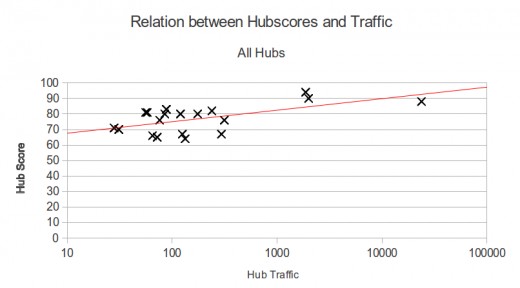
The higher the Hub scores, the higher the traffic, this relation is easy to discover in the graph above.
But what might be the cause of this relation remains still unclear to me - that a high scoring Hub receives more traffic or that a high traffic Hub receives a higher rank. This relation doesn't seem to count for Hubs under 1000 views, only for the Hubs with higher traffic.
So, it seems to be important to continue tinkering on a Hub until it scores higher in order to draw more traffic to it. Some of the tips I gave above can be helpful.
Note: the scale of the X-axis is logarithmic.
Taking Part in Hubpages' Forums
People who like to debate with others on Hubpages' Forums must be aware that in most cases this participation is not stimulating for your Hubber score. This has most likely to do with an imbalance between the amount of text in your Hubs versus the amount of text in the forums.
You will likely achieve the highest Hubber scores, if you dedicate most of your time writing high quality Hubs, and do not participate too much in the forums.
© 2014 by Buildreps

